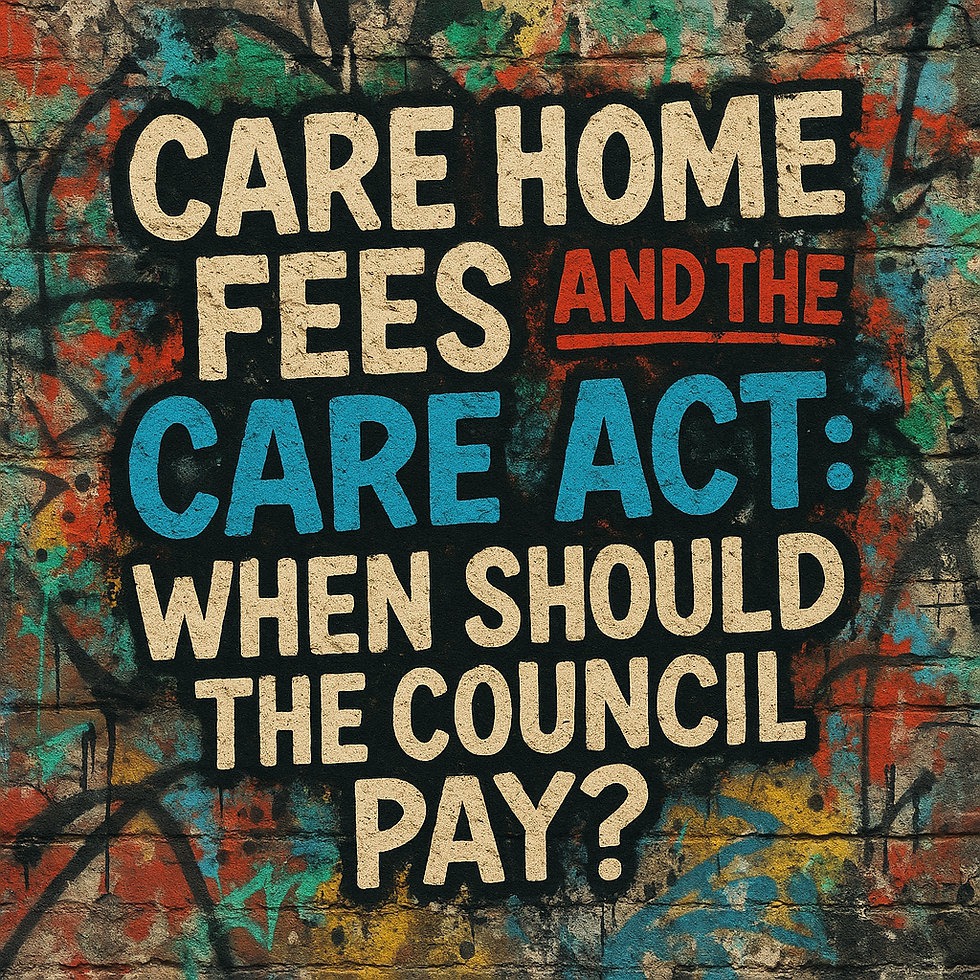The Mental Capacity Amendment Bill
- Team Nellie

- May 2, 2020
- 3 min read
Updated: Apr 21, 2023
On April 24 h the House of Lords completed their 3 rd reading of the MCA amendment Bill, this means that this has now gone through the process of becoming law and will receive royal assent at a date yet to be set. Which is great, I think the Mental Capacity Act (2005) is a fantastic piece of legislation as it protects individuals and legally supports decisions when unfortunately, the individual can no longer do this for themselves. It is an empowering and supportive piece of law which works with the social model and provides protections regardless of your decision-making capabilities. It is almost my favourite piece of legislation, apart from the Human Rights Act and its’ origins which are derived from the Universal Declaration of Human Rights (UDHR) (1948). I could talk all day about this, but the important thing here is Mental Capacity and how to protect people who can no longer make their own important decisions.
It has to be said that what exists currently can no longer be sustained, DoLS has turned into a
monster, partly because of the Cheshire West ruling in 2014 and partly because of the lack of
definition as what constitutes as a deprivation of liberties. It has been suggested by numerous local
authorities, and charities that there is a backlog of over 100.000 cases of deprivation of liberties still outstanding. But we have a definition of deprivation of Liberties art.5 Human Rights Act (1998)
derived from the Convention of Human Rights and directly from the glorious UDHR. So why would
has there been such opposition and discussion within the House of Lords regarding a definition?
What I think the issue here is the current system is a bureaucratic maze in which service users and
professionals have to navigate to avoid legally depriving an individual of one of their Human Rights.
It is long winded, although we have the acid test to determine if an individual is being deprived of
their liberty there are a lot of grey areas and a lot of people wanting to air on the side of caution. It
is important so I am not dismissing this, but I think we have become too risk averse especially as
decision makers who potentially could be made accountable for decisions to deprive individuals of
one of their freedoms granted by virtue of being a human.
So, I ask myself would having a specific definition in law improve the clarity and the decision-making process? The answer is I do not know, as I have suggested before we have a definition of what Liberty is it is enshrined in international customary law, how could we be more specific especially when you have to assess on an individualistic basis? Liberty is freedom and autonomy which means something different to whoever you talk to. We can all agree that being shut away without your own freedom is a deprivation but how would you hope to capture that as a definition when we already have one which provides at least some clarity.
I do agree that something needed to change as keeping up with new DoL’S cases has become almost impossible, but I do wonder if the Mental Capacity Act Amendment Bill will deliver what it intends to do? On the second reading Mat Hancock claimed that “we have a duty of care to the most vulnerable in our society” that is true but is this new bill delivering this duty of care? If the law
makers for example the House of Lords and the House of Commons are being quoted as saying it is being rushed through or can not agree on a definition is this truly going to be a fix to the broken
DoLS system?




Comments